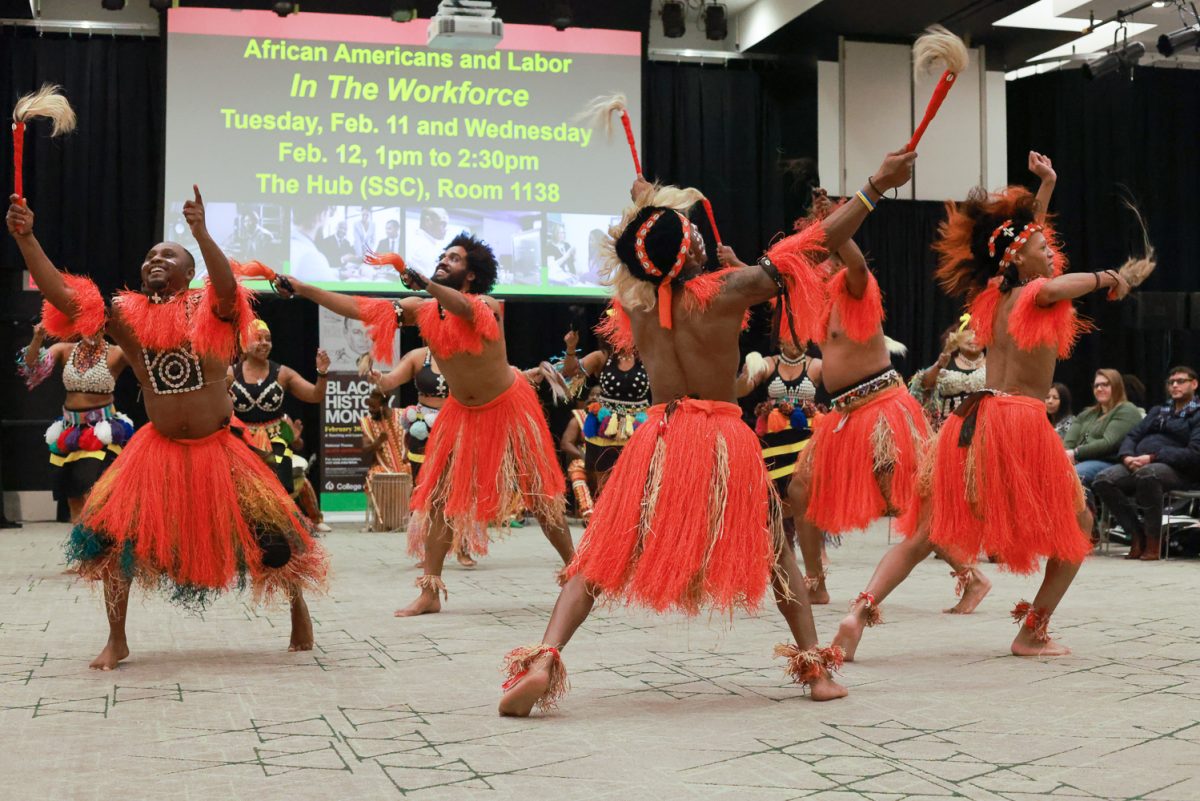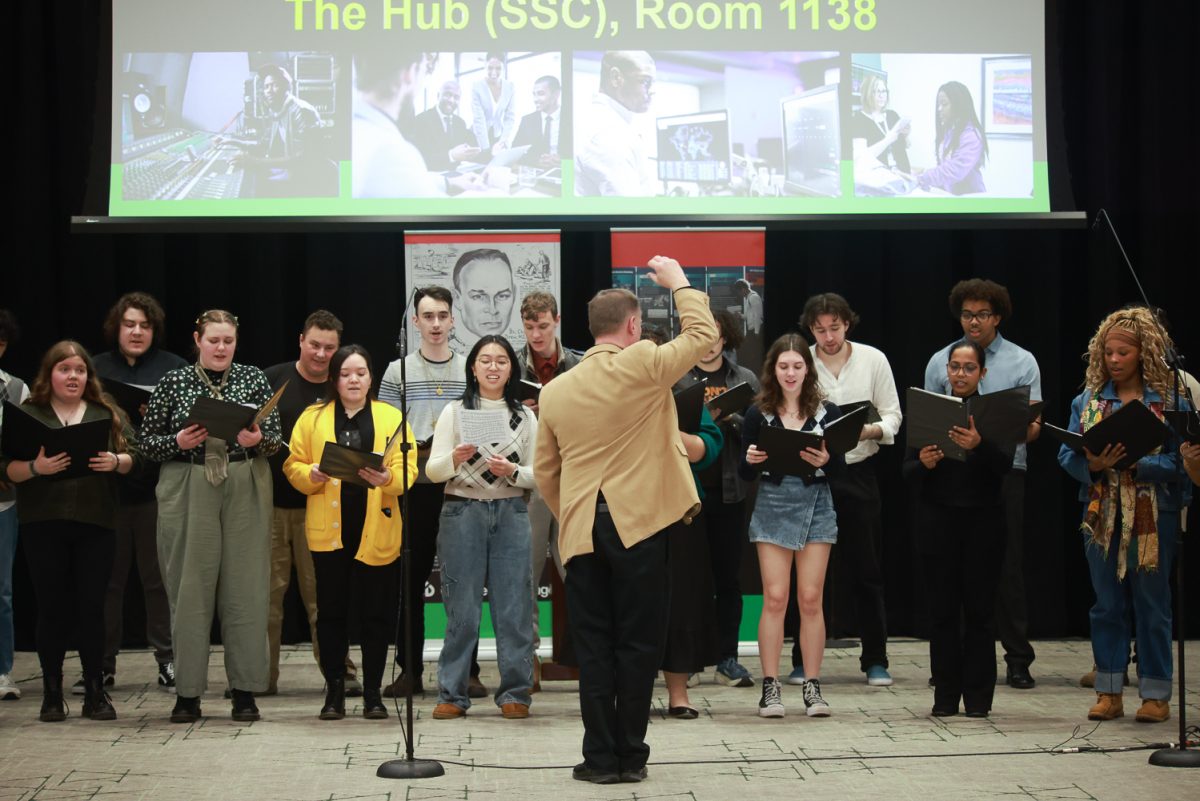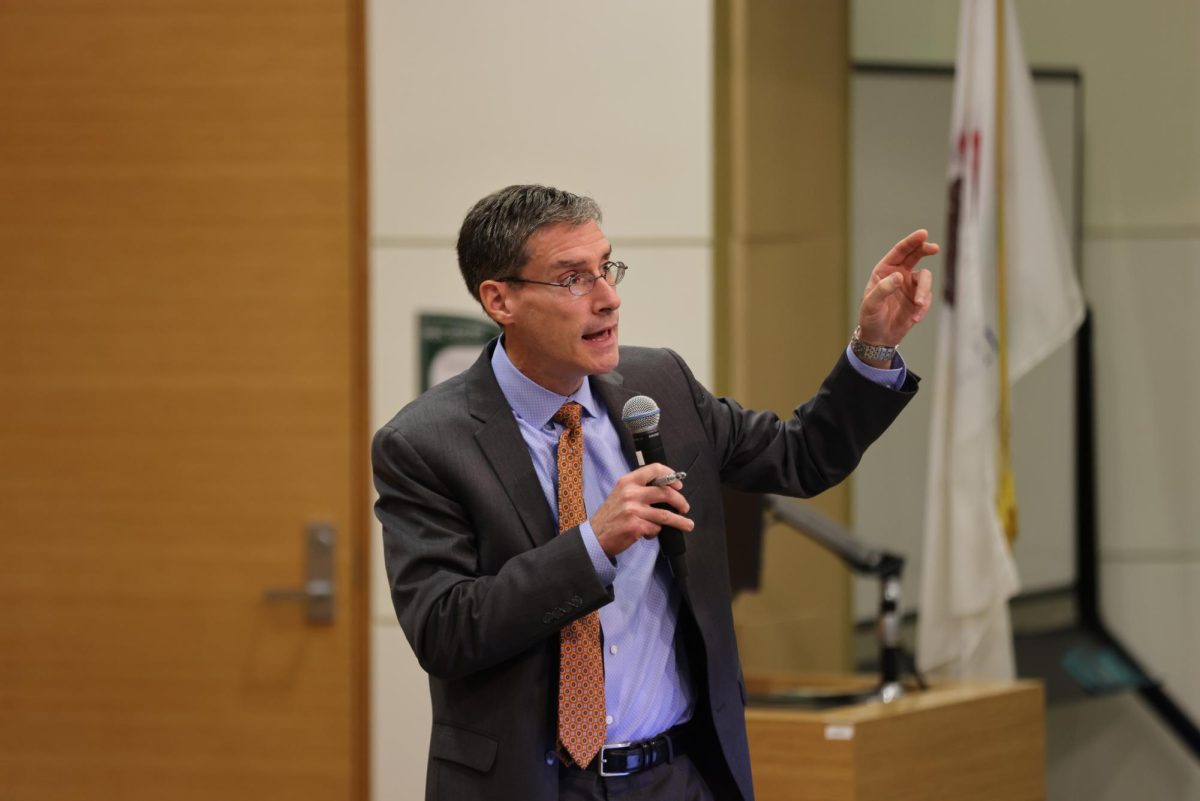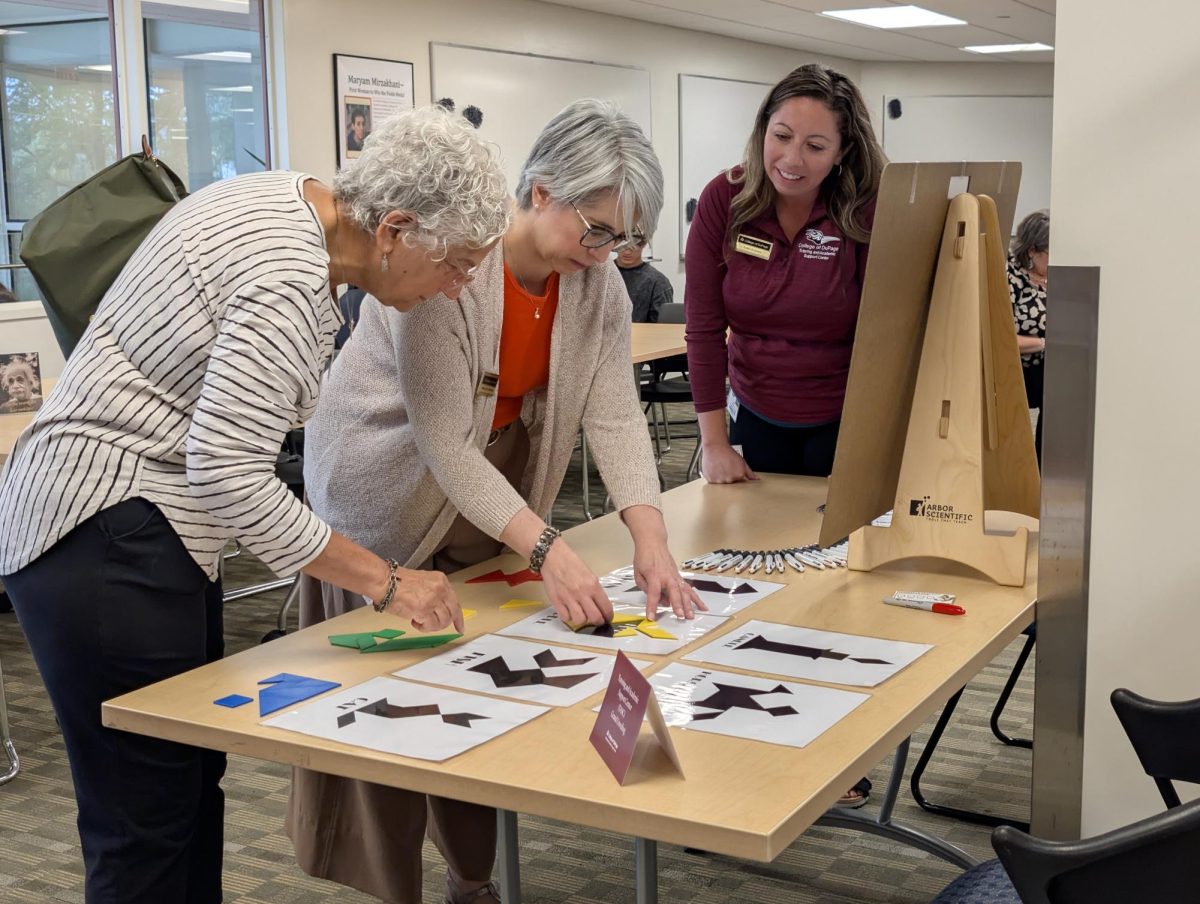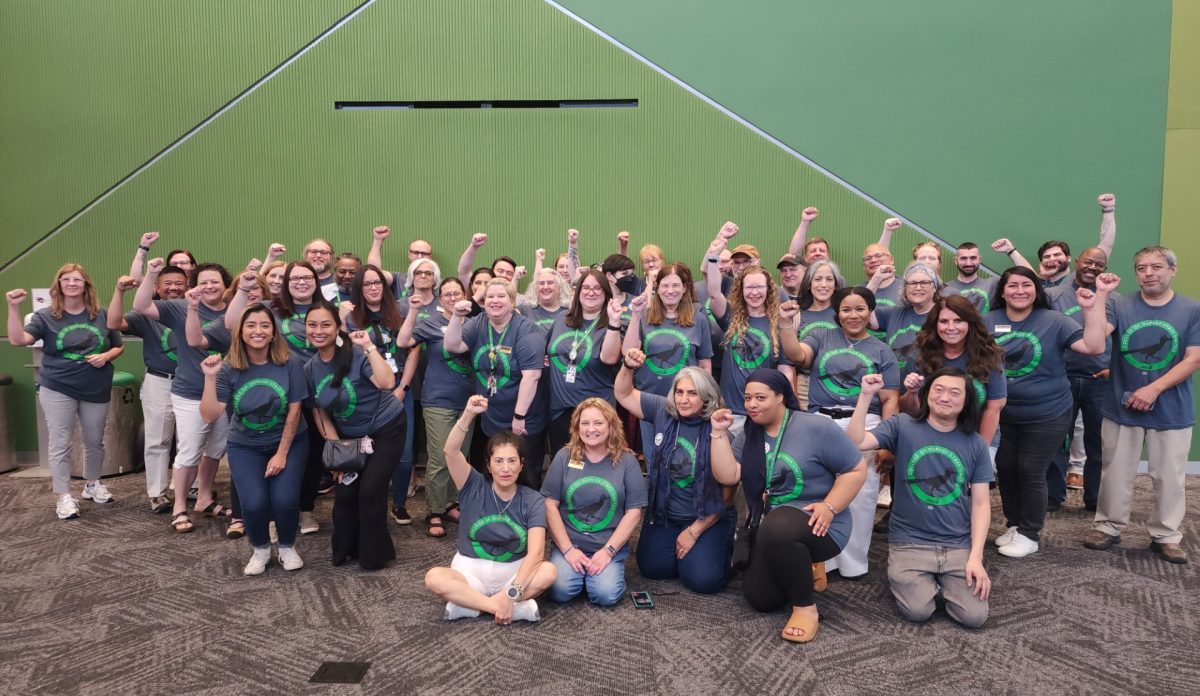“I would be remiss if I didn’t say this: This is an interesting time in America,” said David Swope, manager of Student Diversity and Inclusion at COD. He spoke to a brimming room, with standing attendants in the back, as he gave an address for the COD’s Black History Month 2025 opening ceremony. The majority of the audience were COD students, listening with rapt attention to his resonant speech.
“Our objective is to bring truth to teaching and learning at College of DuPage,” Swope said. “We’re not going down like that.”
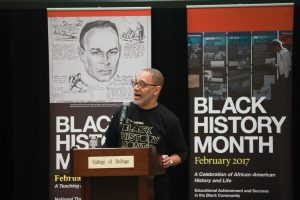
COD hosted its annual Black History Month opening ceremony on Feb. 4, launching a month long celebration of the achievements and contributions of the Black community to American History. The program included COD’s Interim President Christine Hammond and Vice President of COD’s Black Student Alliance Divine Nkanga, as well as performances from COD’s Chamber Singers and COD Dancers. The Afrikan Music Dance Institute and their Djembe Orchestra also returned for another performance at COD.
A celebration of Black history has been held since 1926, with Black History Month first being recognized in 1976, according to the Association of the Studies of African American Life and History (ASALH). Originally it started as a week, evolving into a full month of celebration through the activism of ASALH members.
During her speech, Hammond spoke about why it was critical to celebrate Black History Month in the academic setting, in particular at the college level.
“College is a time of transition. Almost by definition, it is a time of transition,” she said. “We are people moving from one set of circumstances to another. That is what learning and education is all about.”
Hammond quoted American journalist and writer, Ta-Nehisi Coates from his book “The Beautiful Struggle: A Father, Two Sons and an Unlikely Road to Manhood,” saying, “I did not know then that this is what life is–just when you master the geometry of one world, it slips away, and suddenly again, you’re swarmed by strange shapes and impossible angles.”
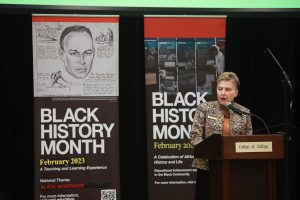
Hammond concluded her speech by reminding attendees that COD was not only a college, but a community as well. She stressed the importance of empathy and inclusivity among all of the COD community members.
“We are smarter and stronger collectively than we are individually,” Hammond said. “That has been proven time and time again.”
Each year the ASALH picks a theme to help the public focus attention on different aspects of Black History and highlight different contributions. This year’s theme, “African Americans and Labor,” focuses on the labor that African Americans have devoted to U.S. history throughout the years.
“Work is at the very center of much of Black history and culture,” reads the ASALH website. “Be it the traditional agricultural labor of enslaved Africans that fed Low Country colonies, debates among Black educators on the importance of vocational training, self-help strategies and entrepreneurship in Black communities or organized labor’s role in fighting both economic and social injustice, Black people’s work has been transformational throughout the U.S., Africa and the Diaspora.”
Nkanga urged the audience to reflect on the impact of the work and effort of the Black Community on their day-to-day lives.
“Black people built America into what it is now. No matter what way you spin this narrative, this is a prevalent truth of our nation,” she said. “Come to an understanding of the innovation, creative thought, stories and literature of Black people that has shaped you. I guarantee you, it is plentiful.”
COD’s Black History Month occurred in light of Donald Trump’s executive order titled “Ending Radical And Wasteful Government DEI Programs And Preferencing.” Signed on Jan. 20, the order called for an end to all diversity, equity and inclusion (DEI) programs–sometimes known as diversity, equity, inclusion and accessibility (DEIA)–claiming them to be unlawful and “shameful discrimination.”
Although Trump did sign a proclamation on Jan. 31, recognizing February as Black History Month, NBC reported federal intelligence agencies received memos “regarding employee resource groups and the celebration of cultural awareness events.” NBC listed Black History Month, as well as 10 other observances, as things that would be considered “banned” by the organizations to be compliant with Trump’s executive order. Other observances listed by NBC are Martin Luther King Jr. Day, Juneteenth, LGBTQ Pride Month and Holocaust Remembrance Day.
“They are using words like ‘DEI’ directly to associate that with culture, the heritage and history of Black people,” said Swope. “You cannot executive order people out of who they are as humans, history, heritage and lineage. We’re not going down like that.”
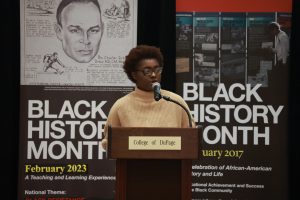
COD hosts a number of events to celebrate Black History Month. For more information about events, check out the Intercultural Events page on the COD website or the COD event calendar.
“Black History is our history,” Nkanga said. “Neglecting history is a lesson, and the lessons learned will make it our future. This Black History Month, and hopefully [the rest of] this year, my task to you all is to learn something and don’t forget it. Hold it with you and make a change.”



